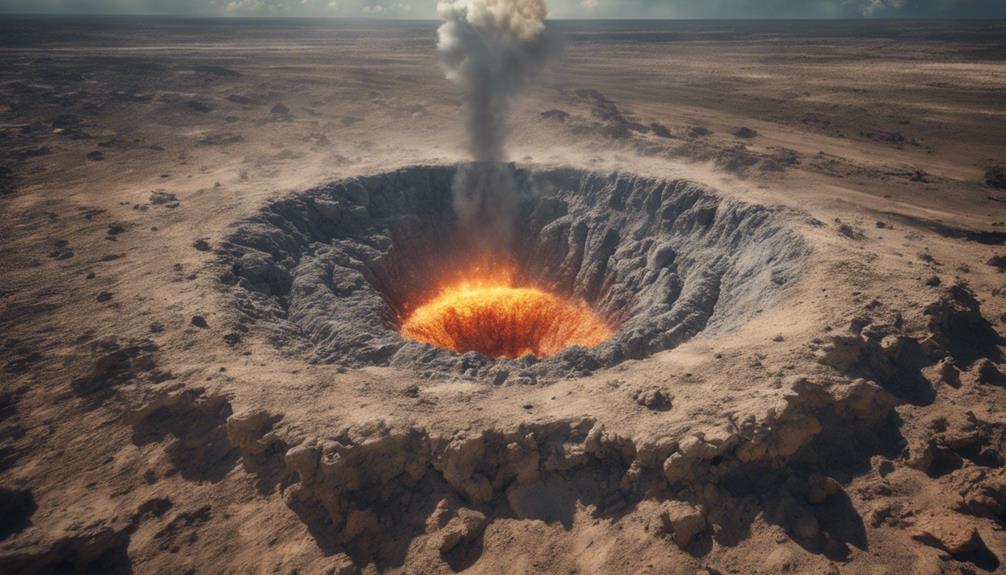The Chicxulub Crater reveals a devastating ancient occurrence, indicating a massive asteroid impact 66 million years ago. This groundbreaking finding in Mexico, spanning over 93 miles wide, is directly connected to a mass extinction event. Through the analysis of core samples, researchers uncover valuable information about ancient phenomena and Earth’s historical environments. Collaborative efforts among specialists from different disciplines aid in understanding the impact and its consequences, painting a detailed picture of Earth’s past. Learn more about the remarkable revelations from this significant event that influenced our planet’s history and current state.
Key Takeaways
- Chicxulub Crater linked to mass extinction, revealing ancient catastrophic impact.
- Core samples unveil geological, biological processes from 66 million years ago.
- Experts analyze rebound material to understand environmental changes post-impact.
- Insights into global earthquakes, volcanic eruptions, and ancient ecosystems.
- Project delves into peak ring area, promising invaluable details about Earth's history.
Discovery of Chicxulub Crater
Discovered in 1978 by Glen Penfield, the Chicxulub crater near the town of Chicxulub in Mexico is a significant geological feature resulting from an asteroid impact 66 million years ago.
The crater, more than 93 miles wide and 12 miles deep, is the only impact site directly linked to a mass extinction event. Penfield's discovery marked a pivotal moment in understanding Earth's history, as the impact led to global earthquakes, volcanic eruptions, and tsunamis.
Evidence like shocked quartz and tektites found in the area further solidified the connection to the catastrophic event.
This groundbreaking find has since spurred scientific endeavors, including a drilling project aimed at unraveling the mysteries surrounding this ancient impact event.
Significance of Impact Event
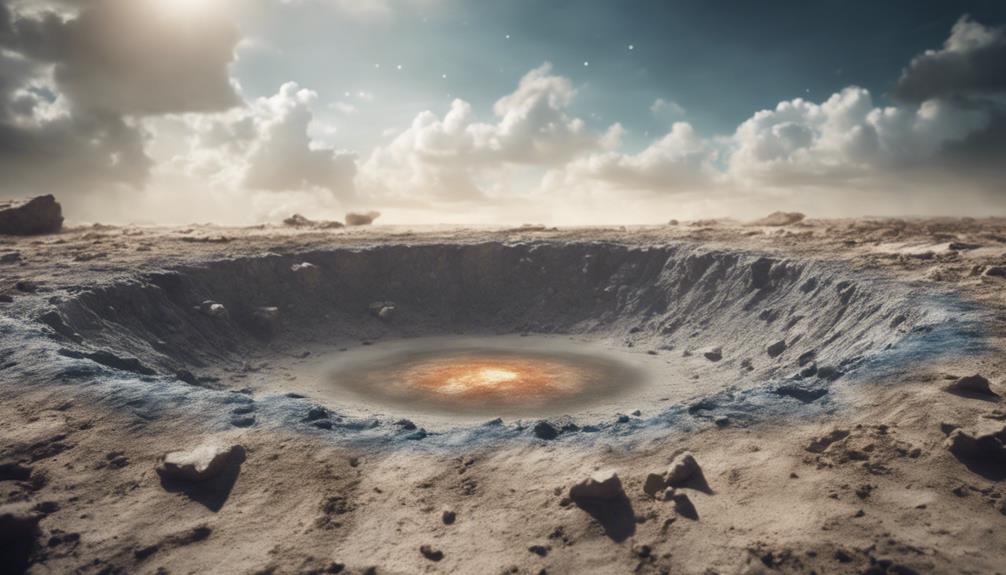
The ancient impact event that formed the Chicxulub crater in Mexico 66 million years ago had profound global consequences. This catastrophic event led to widespread earthquakes, volcanic eruptions, and tsunamis, causing significant environmental changes. The Chicxulub impact is the only crater directly linked to a mass extinction event, making it a critical site for understanding the effects of such catastrophic occurrences on Earth's history.
| Significance of Impact Event | |
|---|---|
| 1. Unique Mass Extinction Link | The only impact crater tied to a mass extinction event |
| 2. Global Environmental Shifts | Led to global earthquakes, volcanic eruptions, and tsunamis |
| 3. Geological Time Capsule | Provides insights into ancient geological and biological processes |
| 4. Understanding Impact Events | Aids in comprehending the nature and effects of asteroid impacts |
| 5. Earth's Environmental Changes | Offers invaluable information about the impact event and Earth's past environments |
Details of Drilling Project
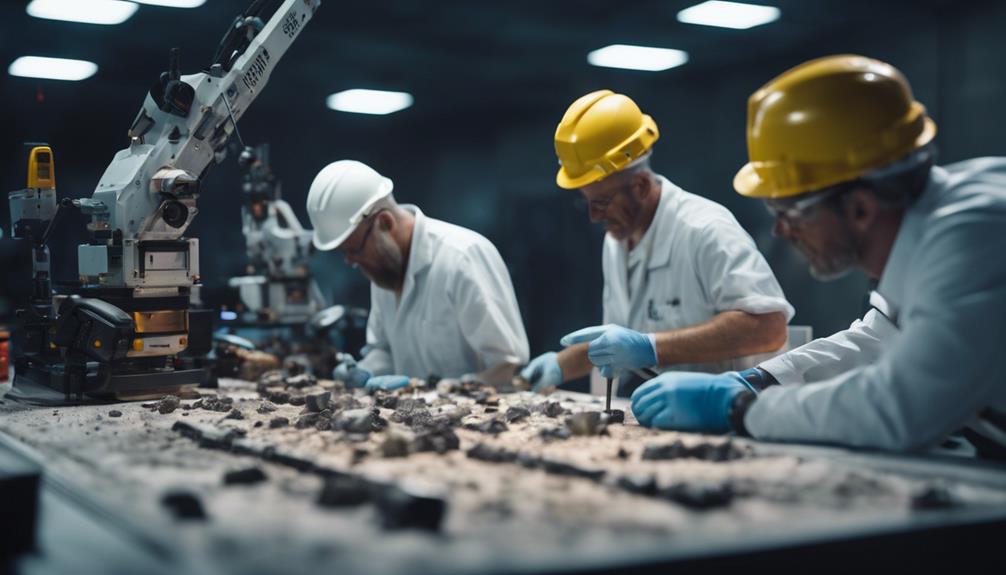
Scientists are launching on a drilling project at the Chicxulub crater to extract core samples from 5,000 feet below the surface. This initiative aims to provide insights into ancient geological and biological processes by acting as a time machine, revealing past environments.
The focus will be on studying the peak ring area to analyze rebound material from the impact. By delving deep into the Earth's crust, researchers seek to understand the nature of the impact, its effects, and the subsequent environmental changes on Earth.
This project represents a significant investment in scientific exploration, with an estimated cost of around $10 million. It will mark the first offshore core extraction from near the crater's center, involving experts from various scientific disciplines such as geology, biology, and paleontology.
Key Insights From Core Sample
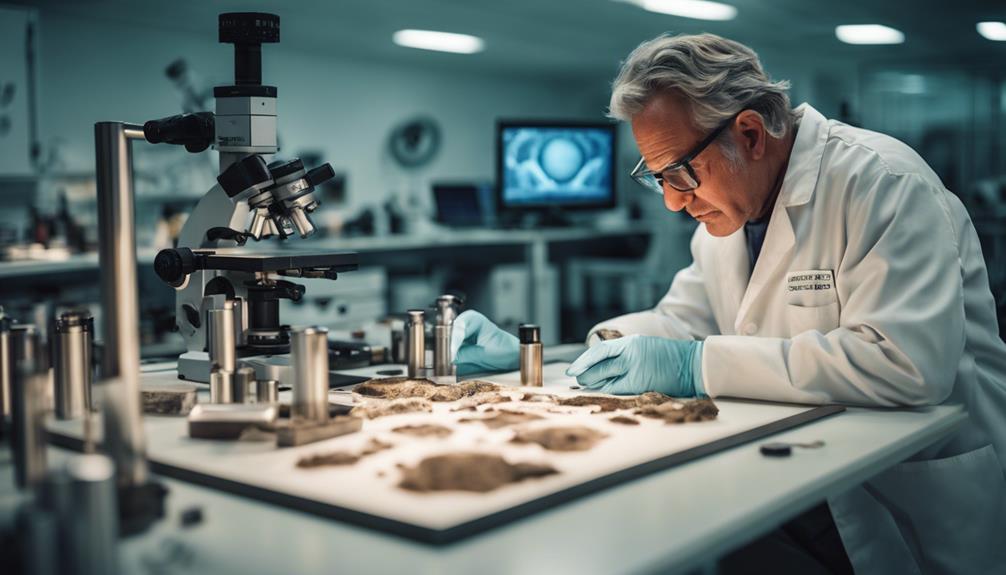
Extracting core samples from the Chicxulub crater's depths promises to reveal critical insights into ancient geological and biological processes. By studying these samples, scientists hope to uncover details about the impact event that led to the formation of the crater 66 million years ago.
The core sample, acting as a time capsule, will provide a glimpse into the environmental conditions of the past, shedding light on how life on Earth was affected by such catastrophic events. Researchers will focus on analyzing the rebound material from the impact in the peak ring area to better understand the nature of the collision, its consequences, and the subsequent changes in Earth's ecosystems.
This endeavor represents a significant investment in scientific exploration, offering invaluable information about the history of our planet.
Involvement of Scientific Experts
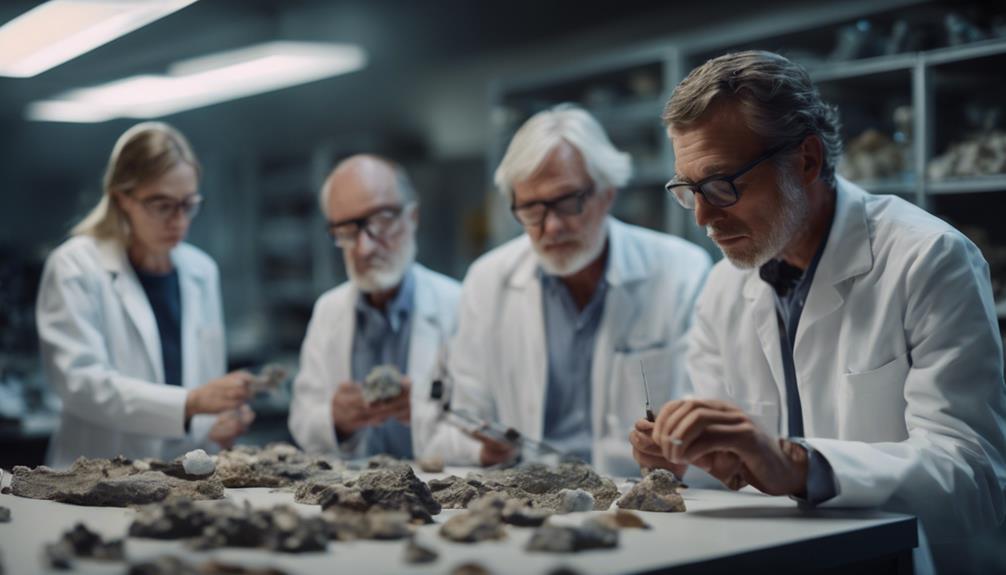
Taking part in the drilling project at Chicxulub crater are experts from various scientific fields, including geology, biology, and paleontology. These scientists bring their specialized knowledge to analyze core samples and understand the impact event that occurred 66 million years ago.
Geologists examine the rock formations and strata to decipher the geological changes caused by the asteroid impact. Biologists study how life adapted and evolved after the catastrophic event, while paleontologists focus on identifying fossilized remains and understanding the impact on ancient ecosystems.
What Impact Did the Chicxulub Crater Have on the Ancient World?
The Chicxulub crater’s impact on the ancient world was profound. It caused mass extinctions and climate change, reshaping the planet. Scientists continue to study its effects, unveiling the intricacies of ekonomi behind the cataclysmic event. Understanding its significance provides insight into our planet’s history and evolution.
Conclusion
To sum up, the Chicxulub Crater offers a window into Earth's tumultuous past, revealing the catastrophic impact event that occurred 66 million years ago.
The recent drilling project aiming to reach 5,000 feet below the crater's surface has provided valuable insights into ancient geological and biological processes.
With over 93 miles wide and 12 miles deep, the Chicxulub Crater stands as a monumental reminder of the immense forces that once reshaped our planet.
